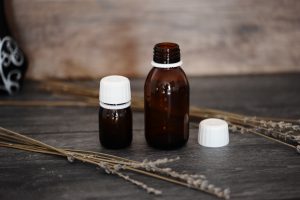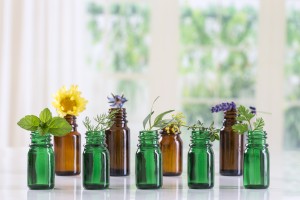Get to know the essential oils better.
 Essential oils are good allies in combating winter discomforts such as coughing, colds, muscle aches, headaches, dry skin and stress due to daily commitments. Essential oils are well known, but it is important to take care of which essential oils are used and to know their benefits.
Essential oils are good allies in combating winter discomforts such as coughing, colds, muscle aches, headaches, dry skin and stress due to daily commitments. Essential oils are well known, but it is important to take care of which essential oils are used and to know their benefits.
They should be used solely for inhalation, as a space freshener, pipette applied for massage and rubbing into the skin or recommended as a hot bath. Some essential oils need a certain temperature to release all the ingredients. Common to all essential oils is that they have to be mixed with one or more ingredients because they are quite concentrated and strong individually.
Usage of essential oils.
To enjoy the benefits of essential oils, make sure you use them immediately. When purchasing, it’s necessary for the responsible person to explain to you how a particular type of oil is used and what are the complications in case of excessive or inappropriate use. In case of pregnancy, breast-feeding, drug allergies and if used by children, it is necessary to consult a doctor or pharmacist before using any essential oil.
We have selected 5 types of essential oils for you which are suitable for winter months and colder weather. Essential oils are stored and stored in glass bottles. The bottles can be with a dropper, pipette or classic stopper as it depends on the use of the oil itself.

1. Eucalyptus essential oil
Eucalyptus oil binds closely to the respiratory system. It is used for inhalation in colds, coughs and asthma. It opens the respiratory ducts and facilitates breathing with a very fresh scent. This oil is a natural antibiotic: an ideal antiseptic ideal for fighting colds.
2. Lavender essential oil
This essential oil is recognizable for its floral scent with a worn-out therapeutic effect. It is used for headaches in the fight against stress (as a natural tranquilizer that helps the state of mind). It is also used for relaxing baths to help with insomnia in the evening. Due to its strong antiseptic effect, lavender essential oil is recommended for colds and flu. Also, lavender is used for dermatological purposes, for minor burns and blisters, insect bites or dry skin.
3. Lemon essential oil
Lemon essential oil is a good antiseptic and antibiotic for wounds and scrapes. It is rich in Vitamin C and is used to fight oily skin and acne. In aromatherapy, it is used to improve the nervous system, help fight high blood pressure, to improve circulation and to fight cellulite.
4. Anise essential oil
One of the most famous essential oils is an antibiotic and antiseptic (which is used to combat the spasm of the stomach muscles and intestines), protects against cramps and stomach problems, can help relieve coughs and strengthens the lungs and respiratory system. It also helps with asthmatic symptoms, hoarseness, cracking of the voice but and against fevers. Lastly, Anise essential oil is often used in digestive problems because it has a positive effect on the liver and the digestive tract in general.
5. Night flower essential oil
The oil of this flower has a beneficial effect on the skin and headache symptoms. It prevents water loss, keeps the skin hydrated (which is especially important during the winter months when the skin is exposed to the wind and cold air as the skin loses its elasticity). Also, it is ideal for dry and chapped skin and for combating eczema and psoriasis.


